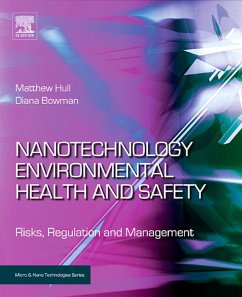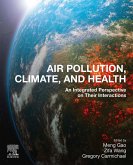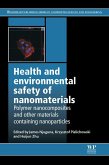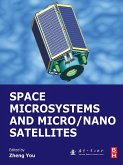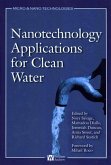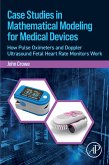Real-world case studies are included, e.g. the discussion of a leading chemical company's unusual pairing with the USA's largest environmental NGO, and an innovative program designed for small- to mid-sized businesses, which became a model approach for proactive nanotechnology EHS risk management.
- Considers the potential of nanotechnology from multiple perspectives (NGO, insurance industry, small business, etc)
- Provides guidance and advice for appropriate, proactive risk management strategies
- Reviews toxicological studies and industrial initiatives, documented with actual case studies
- Of significant interest to CEOs/CTOs of technology companies (SMEs), Health and Safety officers of technology companies (SMEs), Government officials (HSE), Toxicology experts, and venture capitalists
Dieser Download kann aus rechtlichen Gründen nur mit Rechnungsadresse in A, B, BG, CY, CZ, D, DK, EW, E, FIN, F, GR, HR, H, IRL, I, LT, L, LR, M, NL, PL, P, R, S, SLO, SK ausgeliefert werden.

